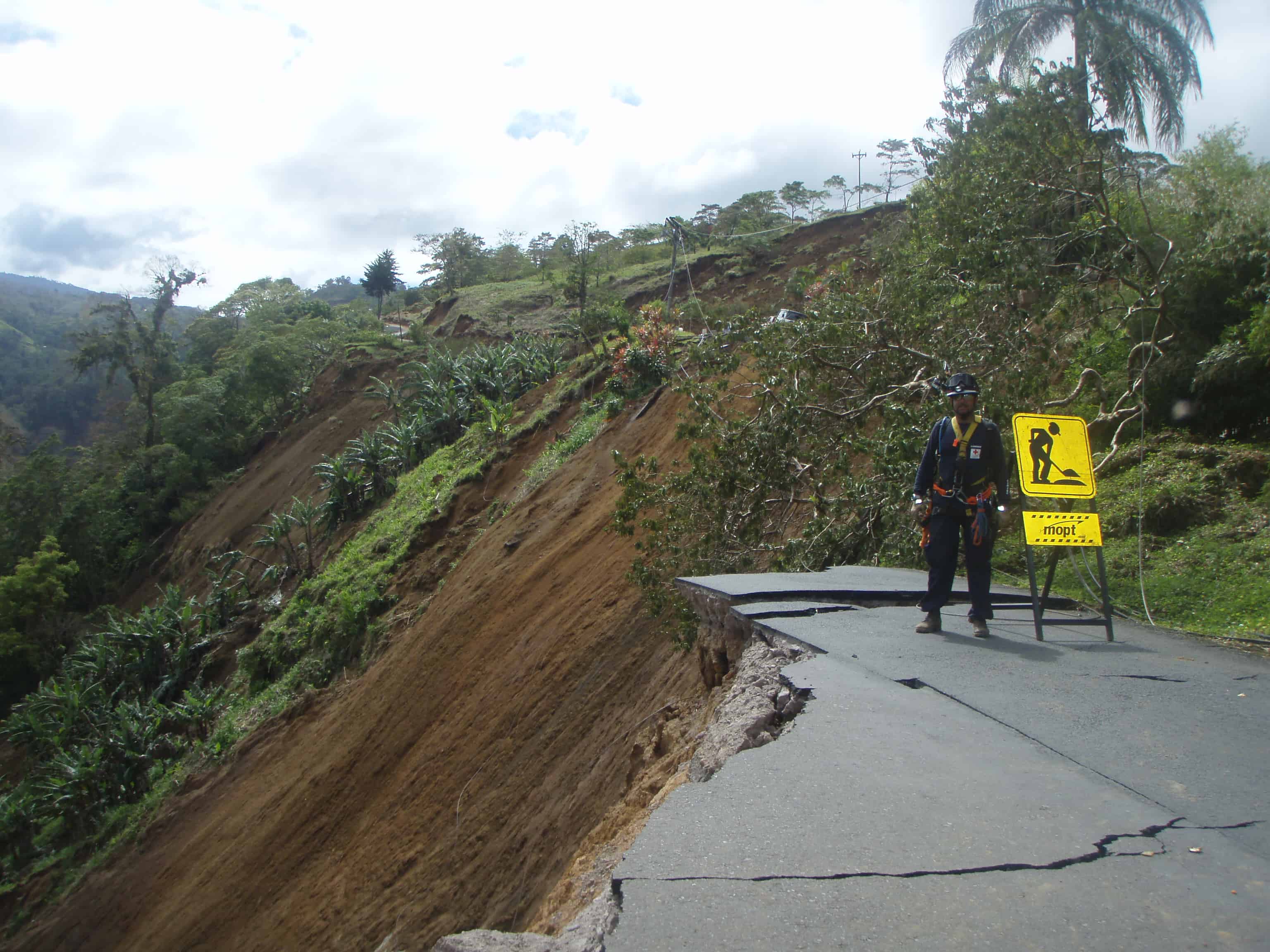Earthquakes in Costa Rica and around the world occur because of rapid, sudden shaking of the ground as the plates underneath the earth move very quickly. When an earthquake hits, you may hear a rumbling sound that gets louder. Plus, you may feel a rolling sensation that starts gently and grows violent.
Some areas in the US are “fault zones,” which means they are at risk for serious earthquakes. These include states in Central America, along the west coast, and in the south. Note that even less powerful earthquakes can be dangerous. Earthquakes occur all over the world. The key is to know how to protect yourself.
The National Earthquake Information Center claims that there are over 50 earthquakes every day in the US alone. The annual average reaches up to 20,000 earthquakes. These earthquakes occur all over the country, but around 45 states are at a moderate to high risk of earthquakes. Places like Costa Rica experience small and large-scale earthquakes frequently – about 12 each day.
While earthquakes are natural disasters that we can’t stop, here are a few ways to keep you and your families safe if you plan to visit Costa Rica anytime soon. So, let us discuss the dos and don’ts during an earthquake.
What are the 5 Safety Steps during an Earthquake?
Following are the 5 steps that can help you protect yourself and your loved ones during an earthquake in Costa Rica.
1. Identify Indoor Hazards and Create a Disaster Plan
During an earthquake, people get injured or hurt because of structural damage, collapsing building material, and heavy objects falling on them. Most of these earthquake hazards include:
- Ceilings Lights and Fixtures
- Refrigerators and Water Heaters
- Windows and Broken Glass
- Shelves, Bookcases, and Cabinets
Creating a disaster plan to deal with these threats can help you minimize and avoid earthquake damage to a great extent. You can practice an earthquake drill, understand emergency procedures, and have an evacuation plan.
2. Identify Potential Weakness
You need to strengthen the infrastructure to ensure that your building can withstand earthquakes. You are likely to survive if you know the safe spots in your home, such as a sturdy table away from the walls.
3. Supply Kits
Help might not reach you for hours after an earthquake as the authorities and rescue teams need time to clear things out. A survival supply kit can help you manage through this tough time; you should have water, non-perishable food, battery-powered radio, and other supplies for at least 3 days.
4. Drop, Cover and Hold On
Drop down onto your hands to protect yourself from falling. Cover your body under a sturdy table or next to low-lying furniture so you can avoid injuries from things falling on you. Try and cover your head while holding on to the covering till the earthquake ends.
5. Check for Damages
Give your loved ones first aid after an earthquake; this improves your chances of surviving until the rescue teams arrive.
What should I do during an Earthquake in Costa Rica?
Costa Rica is prone to frequent earthquakes because the Caribbean and the Cocos plate constantly move. And when they pull apart or collide, they inflict geological forces that result in minor tremors to full-scale earthquakes. Following are some of the things that you should do if you experience an earthquake in Costa Rica.
- Panicking in an earthquake will do you more harm than anything else. It is best to stay in the safe spots until the earthquake ends instead of trying to run out.
- Do not take the elevator even after the earthquake ends because there is a chance of aftershocks. The elevator could drop down to the ground and kill everyone inside, so always take stairs only when you are sure that the earthquake is over.
- Stop driving and stay away from utility poles and billboards if you are in a car.
- Follow the emergency exit in your building or find a door frame or cover under a sturdy table.
- If you are outside, try and find an open spot away from utility wires, buildings, fuel and gas lines.
What Should You do during an Earthquake at Home or in a Hotel?
If you are at home or in a hotel when an earthquake strikes, you should:
- Stay away from all door passages and do not rush since everyone will try to do the same.
- If you have mobility issues and cannot drop to the ground and cover yourself, try and stay in your wheelchair and lock the wheels.
- Cover yourself with bed sheets and pillows if you cannot leave the bed and move to a safe location.
- Stay away from hanging objects, fireplaces, outer walls, and windows.
- Stay out in the open if you are outside; stay away from electric and telephone poles, trees, and other heavy objects that may fall on you.
- If you get stuck, try to get someone’s attention by tapping on a metal or something hard. The rescue teams will probably recognize your sound and reach out to rescue you.
What should you Never do during an Earthquake?
Let us now discuss some of the things that you should not do during an earthquake.
Avoid Turning the Gas on Again
Do not try and turn on the gas right after an earthquake. You never know if there is damage or a leak in the lines that could cause an explosion.
Stay Away from Electrical Appliances
It is best to stay away from using electrical appliances if you ever find yourself in an earthquake because a single spark could cause an explosion or start a fire, hurting you and others around you.






